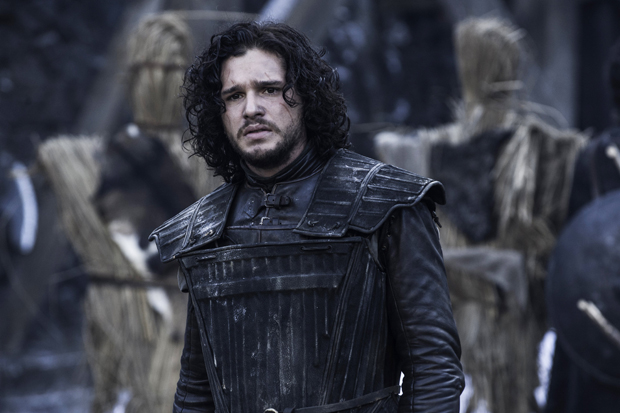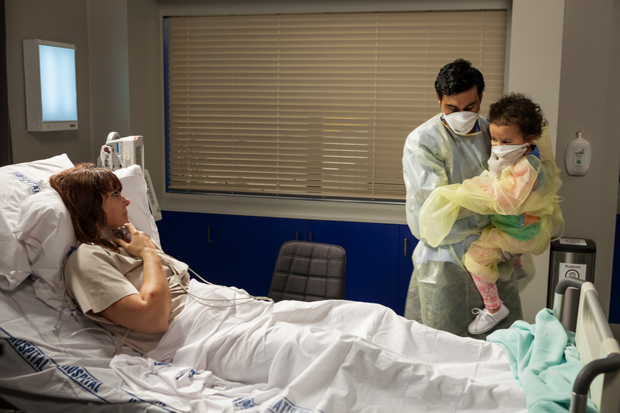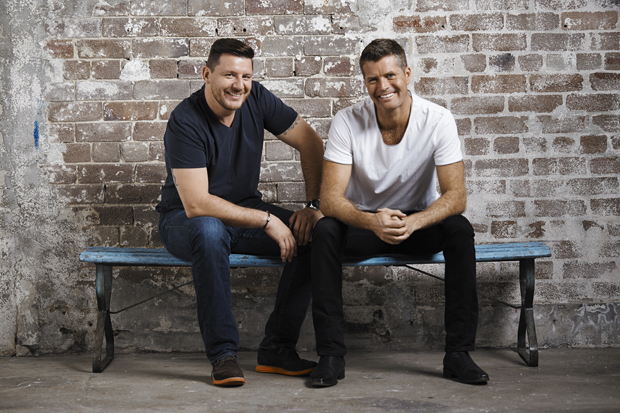
In 2004 Kiwi television viewers lapped up a diet of live local sport, documentaries and free-to-air movies.
Fast forward a decade and tastes have changed ¬ significantly, with an insatiable appetite for fact-based and competitive reality shows.
That may come as no surprise to those of us bombarded most nights by local shows The Block and My Kitchen Rules. Change the channel and it's imports Highway Patrol and Border Security.
But comparing figures on the most watched programmes from 10 years ago with today lays bare our shifting interests.
According to TV bosses, the trend shows no signs of slowing down.
That was reflected as TV3 announced its new season line-up this week, snatching MasterChef after rival TVNZ chopped it, and promising adaptations of international hits The Bachelor and Grand Designs.
In 2004, figures from ratings agency Nielsen show four of the Top 10 most-watched show s on conventional TV in the 25-54 age group were live sports events, featuring rugby and netball.
Families also tuned into gentle movies Bend It Like Beckham and Bridget Jones Diary.
Another smash hit was the TVNZ documentary Dare to Be Free, one of the great World War II escape stories.
Reality shows were in their relative infancy - but the ominous signs of a star in the making were there. The NZ Idol grand final was the most-watched programme and Celebrity Treasure Island was No 7 in the ratings.

Lana Coc-Kroft with other contestants in Celebrity Treasure Island from 2004.
A peek at the 2014 charts, however, reveals a different picture. In the same age category, five reality shows are present - My Kitchen Rules Australia, followed by the fact-based Police Ten 7, Highway Patrol, Moto rway Patrol and Nabbed.
The figures released to the Herald on Sunday only take us up to September 30 but it's a fair bet by the end of the year The Block and MKR NZ will muscle their way into the top 10.
The only real constant between the decades is the ongoing ¬ popularity of One News.
These are trying times in TV land. There is now so much more choice that providers are being prompted to try new things to attract ever-fragmenting audiences.
Figures show that in the 5-plus age groups, at peak times television audience figures are slightly up in the past decade - from 1,347,100 in 2004 to 1,463,500 this year.
But TV companies admit it is a struggle to keep up with where and when viewers are watching because of new time-shifting technologies that allow people to record programmes and watch them when they want.
The rise of on-demand services has also created two distinct audiences.
Younger viewers want to see overseas content online on tablets, laptops and mobile phones shortly after they screen in the US.
Older viewers have until recently been more patient to wait until shows screen later on television. But that is changing, too.
TVNZ recently started fast-tracking content such as the Batman prequel Gotham, Arrow and Marvel's Agents of S.H.I.E.L.D on its channels, as well as on-demand.
"We are now also seeing a rise in Kiwis 'binge watching' their favourite programmes," says Dr Brett Nicholls, senior lecturer in media, film and communication at the University of Otago.

Some people find shows like Game of Thrones, very, addictive.
"They will go to an on-demand service and watch an entire series of Game of Thrones over two days. Some will even brag to their mates that they have taken a few days off work to wat ch as many episodes of Breaking Bad as they can.
"This is something people could never have done 10 years ago. There is so much content available now it is ridiculous."
Nicholls believes television is enjoying a boom time in New Zealand but that TV stations are having -trouble keeping track of the numbers watching because of the variety of delivery systems.
That is leading to new adventures for TV bosses, which point to what - and how - we'll consume our diet of entertainment in the future.
MediaWorks is attempting a groundbreaking format for its breakfast slots on TV3 and RadioLive.
Early next year, Paul Henry will front the country's "first cross platform show" - provisionally called Breakfast 2015 - which will replace the early morning offerings on the television channel and radio station.
MediaWorks is also planning a soap for TV3 that is "firmly rooted in contemporary New Zealand" to rival TV2 stalwart Shortland Street.

Amanda Billing as Dr Sarah Potts (left) in her final episode of Shortland St screened on TV2 18 August 2014. Potts died in this episode.
Even pay-for view giant Sky TV has joined the battle to grab the more demanding viewers of the future.
Sky has seen its subscribers soar from 576,602 in 2004 to 865,055, mainly because of its domination of the live sports market.
However, next month it will introduce a subscription on-demand video service called Neon, in addition to its programmed movie channels.
And next year there will be more free on-demand services introduced that will allow people to download and watch programmes via the ¬internet that are not scheduled to be screened for weeks.
"If people look at the Discovery Channel and see that Shark Week is on next month, they will be able to watch all of this pretty much immediately," Sky c hief executive John Fellet, says.
"People now want and expect easy access to content they are already paying for through their subscriptions and that is a challenge we aim and have to meet."
Online sports coverage is also becoming popular. Sky last year lost the rights to the English Premier League football and top golf to Coliseum Sports Media, which now plans to expands its on-demand content by introducing live European rugby.
The success or failure of new ventures will be tested next year. But there remains one certainty in the mind of programme planners: reality TV is not going ¬anywhere. If anything, we're likely to see more.
Screening prime time challenge programmes multiple times a week like My Kitchen Rules and The Block is a recent phenomenon peculiar to New Zealand and Australia.
"The rise of multi-night challenge reality in recent times took everyone a bit by surprise," says Jeff Latch, TVNZ's head of content.
"Unt il recently, Kiwis were happy with once a week shows like Celebrity Treasure Island. Challenge reality shows being screened three nights a week is something you don't see happening in huge markets like the US and Britain, but Kiwi and ¬Australian audiences are driving and demanding this."

Manu Feildel and Pete Evans , hosts of the Australian series My Kitchen Rules.
My Kitchen Rules is the one sour note. TVNZ is reluctant to take on a second series after disappointing ratings; only 400,000 tuned in for the final this week, compared with 600,000 for the MasterChef final.
But the station will not cut back on its reality content. Far from it, according to Latch.
"These programmes are perfect for the 7.30-8.30pm weekday slots which 10 years ago would have been filled with free-to-air movies and drama.
"Censorship rules mean that during that ti me slot we have to be careful about playing anything that might be deemed to have adult content, so challenge reality programmes will be with us for a long time yet."
Shows like The Block, My Kitchen Rules, The Voice and X-Factor attract the most publicity because of their intense interaction with followers on social media, which ramps up interest.
They are also often viewed via on-demand online platforms on increasing numbers of mobile devices.
Author and media commentator Dr Misha Kavka, associate dean of Film, Television and Media Studies at the University in Auckland, believes inexpensive Kiwi and Aussie reality programmes feature so highly in ratings simply because they are only being watched on conventional TV sets and are of little interest to on demand viewers.
"These kinds of programmes tend to be on in early-evening slots when most folk are at home and the TV is switched on, but perhaps people are not paying too muc h attention to what they are viewing.
"I suspect if the likes of Highway Cops was screened at 10pm, few would bother watching.
"On the other hand, something like The Block cost a lot of cash to make so TV companies will invest a lot of time, effort and money pushing them on social media to generate greater interest across many platforms."
More formats of multi-night international reality shows are also in the pipeline. Kiwi company Great Southern Film and Television has acquired the rights to overseas hits Dancing with the Stars.
"Viewers are far more discerning and less loyal these days and you have to compete hard to hold their attention," Great Southern boss Phil Smith says.
"You have to stick with the winners and for most TV companies that means tried and tested formulas from overseas."
Despite rapidly increasing choice about how, when, what and where ¬people are watching television, most industry experts agree the traditional TV set will remain a centre¬piece in the family home for the foreseeable future.
"In the past, people would almost organise their week by what was on television. Watching favourite programmes at set times and nights was part of a routine," Kavka says.
"Being able to record programmes to be watched later, or kids disappearing into their rooms to watch things on cellphones or tablets, has to some extent disrupted this.
"But most people still enjoy the experience of watching TV together, so they are certainly not out of the habit of this being part of the regular family lifestyle."
- Herald on Sunday



0 comments:
Post a Comment